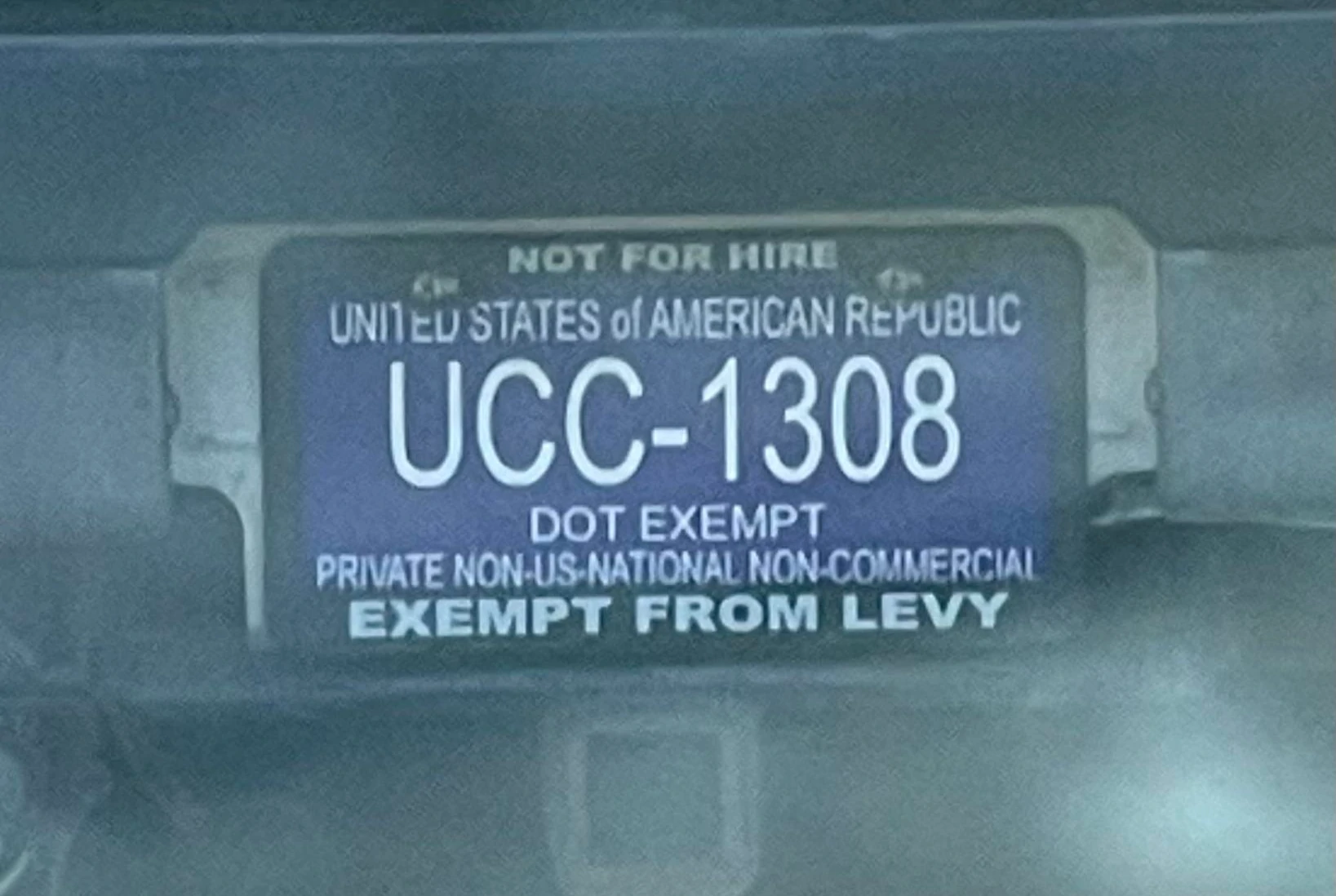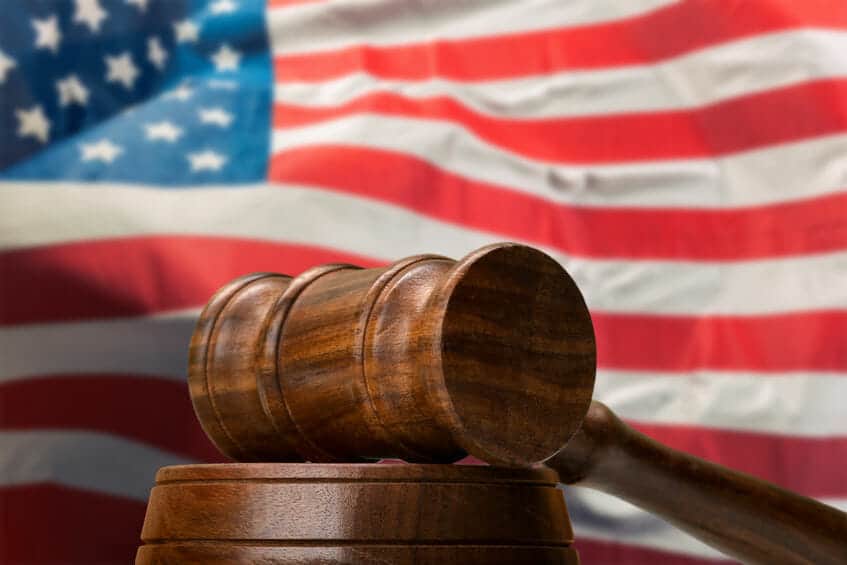Sovereign Citizens and Traffic Stops in Arizona
This post is not going to include a discussion of what it means to be a sovereign citizen. I’ll leave that to other pages like the Wikipedia page on sovereign citizens. In this post I wanted to cover some of the practical issues for sovereign citizens who get caught in the legal system.
I want to be clear – I’m not passing judgment on the sovereign citizen movement. Here at Traffic Law Guys, we’re not big fans of the government either. In our office, we’re concerned with two things: minimizing contact with the police, and if contact does happen, minimizing the consequences.
Minimizing contact with the police.
If one’s goal is to minimize contact with the police – and we believe everyone should have this goal – then openly displaying that you are a sovereign citizen is contrary to this goal. As an example, using a license plate such as that seen below virtually guarantees the driver displaying that plate is going to be face to face with the police in the near future.

I find that the best way to maximize my freedom while driving is to correctly play all of the government games. I don’t want to be an obvious target for the police. In other words, have a valid license plate that is not expired, working headlights and taillights, and so on. Blend in with the herd, so to speak.
Minimizing consequences after coming into contact with the police.
Question: Who has lots of believers, many employees, tons of guns and nearly unlimited resources? If you guessed the government, you’re right! When one of these well-equipped, gun toting government employees pulls over and arrests a sovereign citizen, that driver is now on the government’s radar. That driver will continue to be on the government’s radar until whatever they were arrested for is resolved.
Limited Options After An Arrest
When a sovereign citizen is arrested, they have limited options.
Ignore The Charge(s)
One option is to choose not to engage in defending their case, in which case there will be arrest warrants and license suspensions. While on a philosophical level the sovereign citizen may not accept the validity of the charges, on a practical level warrants and license suspensions will be an issue if the charge is ignored. Warrants and license suspensions are things that bring a driver to the attention of law enforcement. Here again, if the goal is to avoid police and government involvement, warrants and license suspensions are contrary to this goal.
Fight The Charge(s)
The other option is to litigate the charges through the court system. Here again, a sovereign citizen may philosophically disagree with the validity of the court system, but as a practical matter, it is difficult to avoid the courts. The court system is part of that well-funded, well-staffed, gun-toting government enterprise. Failure to work within the court system brings to bear the force of the government.
Playing Ball With The State = Maximizing Personal Freedom
It is our position that it is in a sovereign citizen’s best personal interest to work within the framework of the court system. That is the best way to maximize one’s personal freedom – get through the court system with the minimum consequences.
To that end, a sovereign citizen may best be served by engaging a freedom-minded defense attorney. An attorney can speak the language of the judges and prosecutors, and get the best outcome possible.
It has been our experience that judges and prosecutors immediately write off sovereign citizens as lunatics with whom they don’t want to engage. Having an attorney as a buffer between the judge/prosecutor and the sovereign citizen can be helpful when trying to work something out.
Need help with a ticket?
Email us below and we’ll reach out.
Latest Blog Posts
Veterans Court in Arizona
Some courts offer a program available to veterans called veterans court. The concept is that veterans may have had experiences or life situations that contributed in some way to the charge(s) filed against them.
Healthcare Professionals and Mandatory Reporting of Misdemeanors
If you hold a professional license related to healthcare in Arizona, you may be required to self-report an arrest or a conviction to your licensing board.
Chris Rike is a founding partner of Traffic Law Guys, an Arizona law firm committed to protecting the rights of drivers facing criminal traffic charges.


